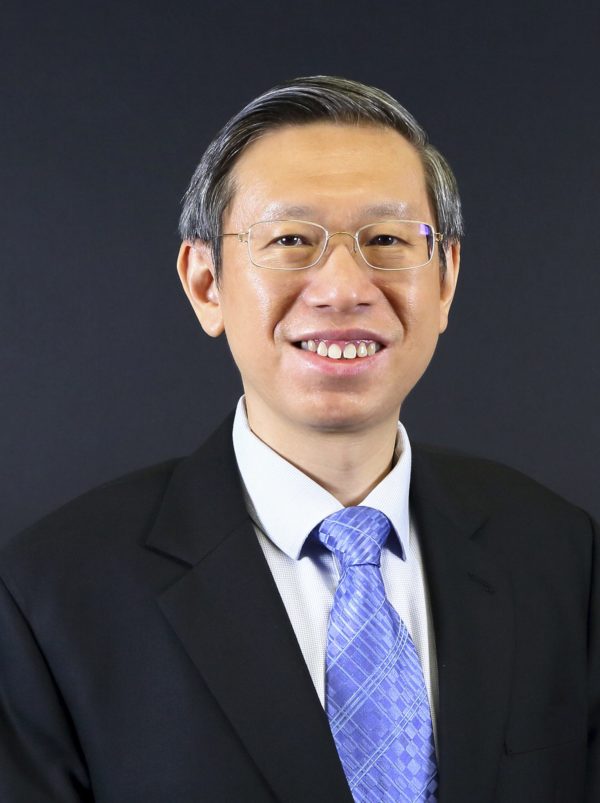5 Principles of Responsible AI Development
February 28, 2024 2024-02-29 15:165 Principles of Responsible AI Development
5 Principles of Responsible AI Development

Artificial Intelligence (AI) is set to bring great benefits to human society from innovative technologies to mitigate the effects of climate change, to greater productivity in all our economic activities, healthcare, and education. However, without a doubt, its recent rise has brought forth challenges that have an impact on human society. The capabilities of AI for misinformation, the dangers of superintelligence to humans, ethics, privacy and cybersecurity are some of these concerns.
RHT G.R.A.C.E Forum 2024, held on 20 February 2024, gathered experts from diverse disciplines to discuss the responsible integration of AI technology into our lives. With a focus on fostering inclusive and sustainable practices, the forum provided a platform for insightful discussions and recommendations.
During the commencement address at the RHT G.R.A.C.E Forum 2024, Mr Yang Eu Jin, Director of RHT G.R.A.C.E, said, “For the first time in history, machines can now actually learn. We don’t have to teach them all the rules, we teach them enough and they start learning by themselves. They’re like children, it’s amazing. You teach them something and then they develop by themselves. Perhaps one day, we will have machines learning alongside us. We need people with the right values and the right skills, to be able to teach them.”
As AI increasingly infiltrates diverse facets of society, there emerges a pressing demand for ethical guidelines and conscientious practices in its deployment. The necessity for a framework governing the responsible development, deployment, and regulation of AI becomes ever more important.
Deepfakes and Misinformation
The rapid development of generative AI raises concerns about the potential misuse of AI for spreading misinformation, manipulating public opinion, and damaging reputations.
With national elections in major economies including the U.S.A., the U.K. and Russia coming up this year, the issue of deepfakes and AI-generated misinformation is of great concern. OpenAI the creator of ChatGPT has issued a policy and strategy directive to address the issue1.
Autonomous AI and Superintelligence
However, deepfakes and AI-generated misinformation are not the only examples of unethical and harmful AI. The growing ability of AI to make autonomous decisions is another example. In military technology, the use of autonomous killer drones besides being unethical could trigger unintended military conflicts.
The ability of AI to progress to a point that computer scientist and futurist Ray Kurzweil called ‘Singularity’ has sent alarm bells ringing among the giants of AI technology. Singularity is the stage at which computers, because of their extremely exponential rate of learning, will become more intelligent than humans with the ability to clone themselves, operate in swarms, outwit and even disregard the instructions of their handlers. This has led to the concerns on the dangers of AI voiced by prominent tech leaders including Geoffery Hinton known as the Godfather of AI for his seminal work on artificial neural networks, Elon Musk of Tesla, and SpaceX fame, and Steve Wozniak, Co-Founder of Apple Computer. An open letter and petition by the Future of Life Institute to slow down the pace of AI development was signed by more than 1000 signatories in March 2023 by the Future of Life Institute2.
Privacy
Guiding Principles for Responsible AI
1. Accountability
Ensure that those responsible for developing and using AI systems are held accountable for their actions and decisions. Implement mechanisms to track and address any adverse consequences resulting from AI applications.
2. Transparency
Make AI processes and outcomes understandable and accessible to common users, fostering trust and confidence in the technology. Provide clear explanations of how AI algorithms make decisions and handle sensitive data.
3. Security and Safety
Implement robust security measures to protect against potential risks such as data breaches and cyberattacks. Ensure that AI systems prioritise user safety and do not pose physical or psychological harm.
4. Human-Centred Values
Prioritize human well-being and dignity in all aspects of AI design and implementation. Consider the social, cultural, and ethical implications of AI applications, placing human needs at the forefront.
5. Diversity and Inclusivity
Promote diversity and inclusivity in AI development teams to ensure a wide range of perspectives and experiences are represented. Design AI systems that are accessible and equitable, benefiting all members of society regardless of background or identity.
By upholding these principles, we can harness AI’s transformative potential while safeguarding against potential pitfalls and promoting the greater good.
RHT G.R.A.C.E Institute
RHT G.R.A.C.E Institute Ltd (“RGI”), launched by ONERHT Foundation, is a social enterprise in Singapore with a mission to foster a culture focused on increasing awareness, promoting ethical leadership, and cultivating a community of leaders, professionals, and businesses. Anchored on Governance, Risk management, AML compliance, and Ethical principles, G.R.A.C.E. aims to elevate organisations by infusing these principles into their culture and decision-making processes.
About the Author

- How OpenAI is approaching 2024 worldwide elections. https://openai.com/blog/how-openai-is-approaching-2024-worldwide-elections?utm_source=tldrai
- Pause Giant AI Experiments: An Open Letter. https://futureoflife.org/open-letter/pause-giant-ai-experiments/
Search
Recent Posts
- ONERHT Foundation’s 7th GAIL Forum – 2024
- 5 Keys to Cultivating a Culture of Sustainability Within Your Organisation
- Responsible Retrenchments in an Uncertain Economic Landscape: Lessons from the Lazada Layoffs for Employers and Employees
- 5 Principles of Responsible AI Development
- A Dialogue on Sustainability in Healthcare & Life Sciences: Social & Governance (Part 3)


